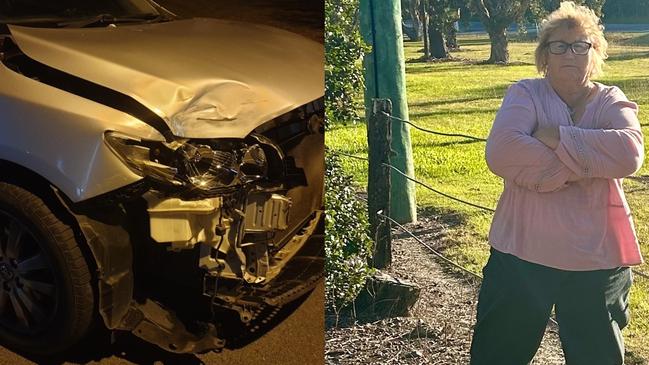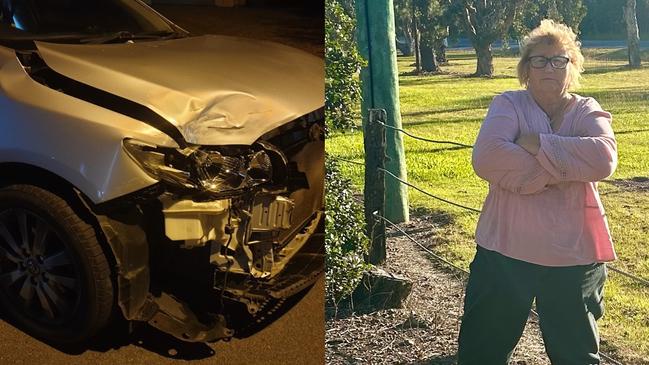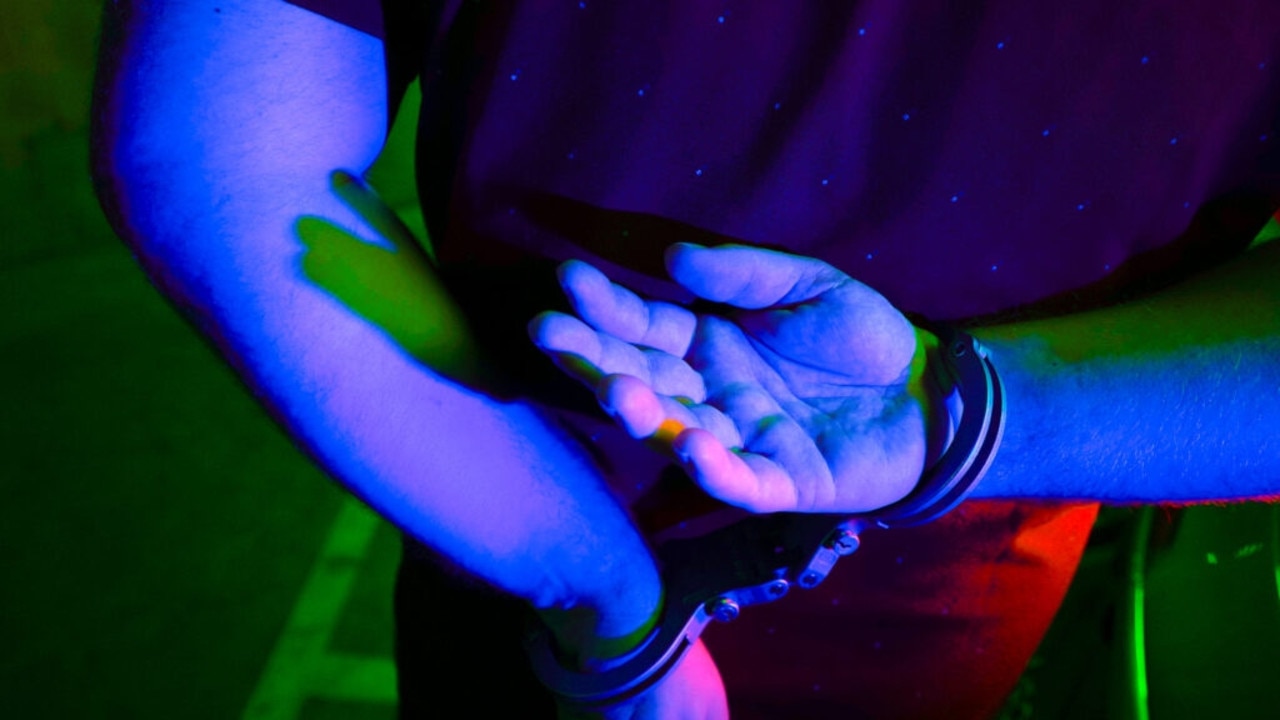Why juvenile GPS tracker trial won’t be brought to Fraser Coast
A trial that fits young criminals with GPS trackers was expanded this week, but the Fraser Coast has missed out on being part of the wider plan to monitor juvenile offenders, despite its deadly youth crime crisis.

Police & Courts
Don't miss out on the headlines from Police & Courts. Followed categories will be added to My News.
A trial that fits young criminals with GPS trackers was expanded this week, but the Fraser Coast has missed out on being part of the wider plan to monitor juvenile offenders, despite its deadly youth crime crisis.
The community has been shaken in the past few months by a series of shocking incidents allegedly involving teenage offenders, including a triple fatal crash in Maryborough on April 30, over which a 13-year-old boy has been charged, and the killing of Hervey Bay Uber driver Scott Cabrie in February, over which two teens have been charged.
In May, Hervey Bay Uber driver Julie Stephenson fell victim to teenage car thieves who crashed into her vehicle, telling the Chronicle of her close call.
With three passengers in the car, she suddenly found herself swerving to avoid a speeding silver Toyota at the corner of Shell and Elizabeth Streets in Urangan.
The car, which she believes must have been doing at least 80km in a 50km zone, hit the left-hand side of hers and left it with considerable damage.
One of the teens allegedly involved in the crash, a 15-year-old girl, has been arrested eight times and charged with three counts of dangerous operation of a vehicle, six counts of unlicensed driving, six counts of unlawful use of a motor vehicle, two counts of evade police, four counts of breach of bail, two counts of enter dwelling and commit indictable offence and six counts of fraud - a total of 29 charges.
This week, the trial of the ankle-worn electronic monitoring devices to track teen criminals was extended to Toowoomba, Cairns and Mount Isa.
They join other youth crime hot spots in Townsville, North Brisbane, Moreton Bay, Logan and Gold Coast, which have had access to the trackers for 16 and 17-year-old recidivist offenders since mid-2021.
After the original 16-month trial, just eight children were ordered to wear trackers but the total figure has now reached 16.
But Fraser Coast was not included and Ms Stephenson said the trial urgently needed to be brought to the region to address youth crime.
She said juvenile offenders in the region were “out of control” and the break-ins, car thefts and damage they were causing was costing the community.
“The juveniles behind the wheel will kill. They had no care factor that they crashed into us – they took off and left us,” she said.
Ms Stephenson said juvenile offenders needed harsher penalties and should not be let out repeatedly without monitoring to reoffend.
“My livelihood has been affected by their actions – it has cost me thousands to be able to earn an income again.”
Her comments come as it was revealed unlawful use of a motor vehicle have skyrocketed by more than 300 per cent in Hervey Bay and Maryborough in the past seven years.

In the past 12 months, instances of unlawful use of a vehicle were up 11 per cent in Hervey Bay and 142 per cent in Maryborough.
Opposition spokesman for police Dale Last labelled the GPS trial an “epic fail”.
“Only 14 trackers have been rolled out in Townsville, Brisbane, Logan and the Gold Coast because the Palaszczuk Labor Government is overcome with chaos and crisis,” he said.
“Fraser Coast residents and small business owners are paying the price for Labor’s crime epidemic.
“The State Opposition was mocked for two years by the police minister fighting for breach of bail as an offence, before he finally caved.
“The LNP has put solutions on the table including more police, gold standard early intervention and unshackle the judiciary to remove detention as a last resort.
“Weaker laws and fewer police, is it any wonder the Fraser Coast is in the middle of a crime crisis?”
In response, a Youth Justice Department spokesperson said the trial of electronic monitoring devices had been extended for another two years to April 2025.
“It has been expanded to Cairns, Mount Isa and Toowoomba, and the age of eligibility has been lowered from 16 to 15.
“Trial locations are based on having a large enough population and number of serious repeat offenders, as significant resources and technical capabilities are required for electronic monitoring devices to be implemented.
“In Maryborough, there is only a very small number of serious repeat young offenders.
“Lowering the age and extending the trial to more locations will provide a bigger sample size for determining the future use of these devices, which are only for cases where bail has been granted.
“The Queensland Government continues to take community concerns about youth crime seriously.
“Earlier this year, laws were strengthened to target serious offenders, and an extra $100 million was committed for intervention, diversionary and rehabilitation programs to help prevent and reduce offending.
“Young offenders must be held accountable for their actions, but they must also be given the opportunity to turn their lives around.”
A wide range of programs and services were being offered on the Fraser Coast, the spokeswoman said.
That included:
- Youth co-responder team – a new team of police and youth justice workers will conduct patrols together and engage with young people and their families to deter offending.
- Intensive case management – intensive support by highly specialised case managers delivering evidence-based interventions to a small number of high-risk young people and their families.
- Multi-agency collaborative panel – this is made up of agencies such as education, housing and health which oversee case management of serious repeat offenders and ensure they are connected to support services tailored to their needs.
- Bail support service – this new program supports young people to ensure they meet their bail conditions.
- Restorative justice conferencing – this brings together the young person, victims of crime and family members face-to-face to discuss the effects of their offence and how to repair the harm caused.
- Transition to Success – this provides alternative education and vocational training.
- Community Partnership Innovation Grants – A new community-led project called Babbinyuwi Wanda-Rites of Passage by the Marigurim Yalaam Indigenous Corporation has been funded to provide a culturally safe rites of passage camp and intensive support for young people
- Behavioural management programs – a range of programs help young people to reduce aggression and regulate emotions.




